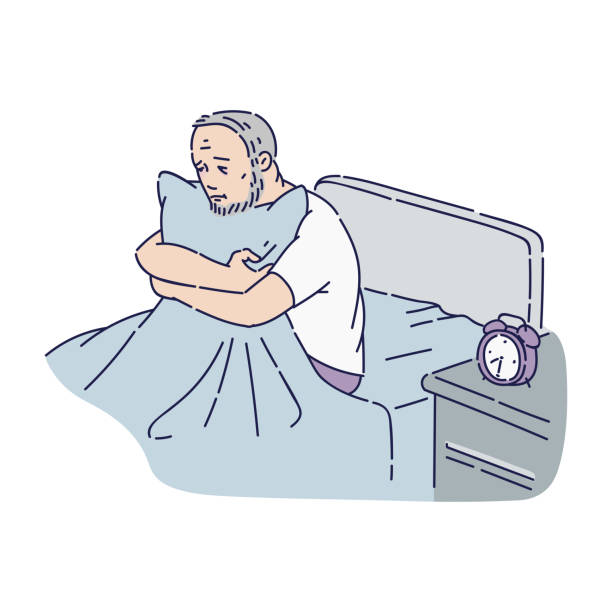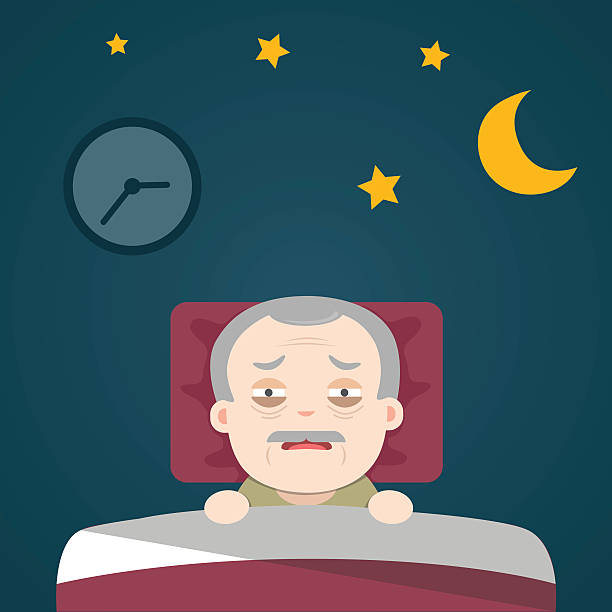Insomnia is one of the common conditions of old age, which is part of aging. However, insomnia in the elderly can also be caused by many other causes, we need to consider and approach all cases to be able to treat the disease most effectively.
Causes of insomnia in the elderly
There are many causes of sleep problems and insomnia in the elderly, including physical and mental changes as well as diseases.
Due to physiological changes: In the elderly, the natural aging process reduces the effectiveness of the body's circadian rhythm control system. Including sleep-wake rhythm and reducing the adaptation of the elderly to changes affecting the human body; reduces the ability to maintain normal activities before changes in the environment, causing disturbances in the body's activities, including sleep.
Due to pathology: For the elderly may have many comorbidities, using many drugs to treat these diseases, the elderly are also subject to many psychological factors that cause depression and anxiety, so the rate of insomnia is higher.
Sleep apnea and cyclic leg movement disorder (restless leg syndrome), increase with age. Sleep apnea is the interruption of breathing during sleep, peripheral apnea due to airway obstruction, and central apnea caused by brain disease, especially common in elderly people with obesity. Sleep apnea leads to sleepiness during the day, increased blood pressure and arrhythmia, and an enlarged heart, which can lead to sudden death, in addition to heart failure, and cardiac arrhythmia causing disturbances in the breath.
Elderly people also often have pain, especially musculoskeletal pain, and it is often worse in the morning. The impaired kidney function also makes the elderly often urinate at night, causing insomnia, or neurological diseases such as Parkinson's disease, and Alzheimer's disease. Mental illnesses such as depression, and anxiety disorders, especially the elderly have psychological trauma factors such as mourning, loss of a spouse, close friends, retirement, loneliness, etc. All of these are high-risk factors for insomnia in the elderly.

How to treat and overcome insomnia?
Insomnia makes the elderly feel tired, difficult to concentrate on work, memory loss, no feeling of comfort, daytime sleepiness, and headache in the morning. Prolonged insomnia will make the body and mind always tired, anxious, psychologically unstable, and unable to control emotions...

It is necessary to treat insomnia in the elderly as soon as possible to help the patient have a good night's sleep and prevent adverse health effects.
To re-regulate sleep, help the patient return to sleep in the most natural way. Elderly people should learn to relax to feel relaxed both physically and mentally.
• Create a relaxing and quiet environment when going to sleep, including optimal conditions for light, noise, and temperature... The bedroom has a comfortable, airy space, not recommended for public works. other works.
• Avoid drinking coffee, alcohol, beer, and smoking. Do not eat or drink too much within 3 hours before going to bed.
• It is recommended to take a warm bath before going to bed to increase body temperature, helping to sleep more easily.
• Changing habits and lifestyles help improve sleep problems. Sleep on time, don't sleep much during the day, avoid lying in bed reading, watching TV...
• Wear comfortable, loose-fitting clothes when going to bed.
The use of medication to treat insomnia requires a prescription from a psychiatrist. Only use the drugs for your disease according to the instructions of the doctor, and avoid buying drugs to use on your own. Talk to your doctor about the sleep-inducing effects of your medication.
Source: Health & Life Newspaper